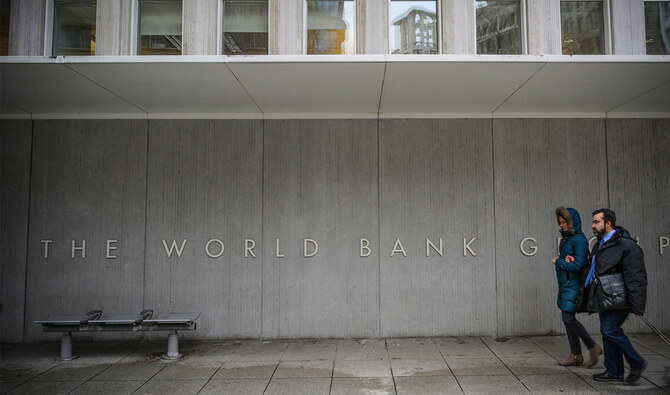ISLAMABAD: A World Bank mission is in Pakistan to discuss a plan to improve the power stability system in the energy-starved South Asian country, a spokesperson of the financial institution confirmed on Monday.
As per local media reports, the World Bank mission was due to arrive in Pakistan on Monday for a two-day visit to develop a work plan and agree on the next steps to advance the preparation of Reactive Compensation Devices.
Reactive Compensation Devices are electrical systems used to manage and improve the quality of power in electrical grids by controlling the flow of reactive power.
“There is a mission in town. That’s all I can confirm at this point,” Maryam Altaf, the communications officer at the World Bank’s Pakistan office, told Arab News when asked to confirm reports.
Pakistan has been eagerly attempting to reform its energy sector, lower electricity costs and reduce transmission losses in its bid to curtail its mounting circular debt.
Prime Minister Shehbaz Sharif’s government has increasingly spoken about its desire to reduce electricity theft and transmission losses through energy sector reforms. This has resulted in the country suffering long hours of power outages, especially during summers, and suffering huge economic losses as a result.
Earlier this month, the federal cabinet approved a plan to renegotiate agreements with 14 independent power producers (IPPs). The government said the revised agreements with the IPPs would cause a reduction of Rs802 billion ($2.9 billion) in costs and profits, including a Rs35 billion ($126 million) cut in past excess profits.
At the core of Pakistan’s energy problems are capacity charges, or payments made to IPPs regardless of electricity consumption, which have exacerbated Pakistan’s circular debt, now exceeding Rs2.4 trillion ($8.6 billion), as per energy minister Sardar Awais Ahmad Laghari.
Laghari also announced earlier this month that the government will implement a new energy market system through which consumers will be able to buy power from multiple suppliers starting March.
















